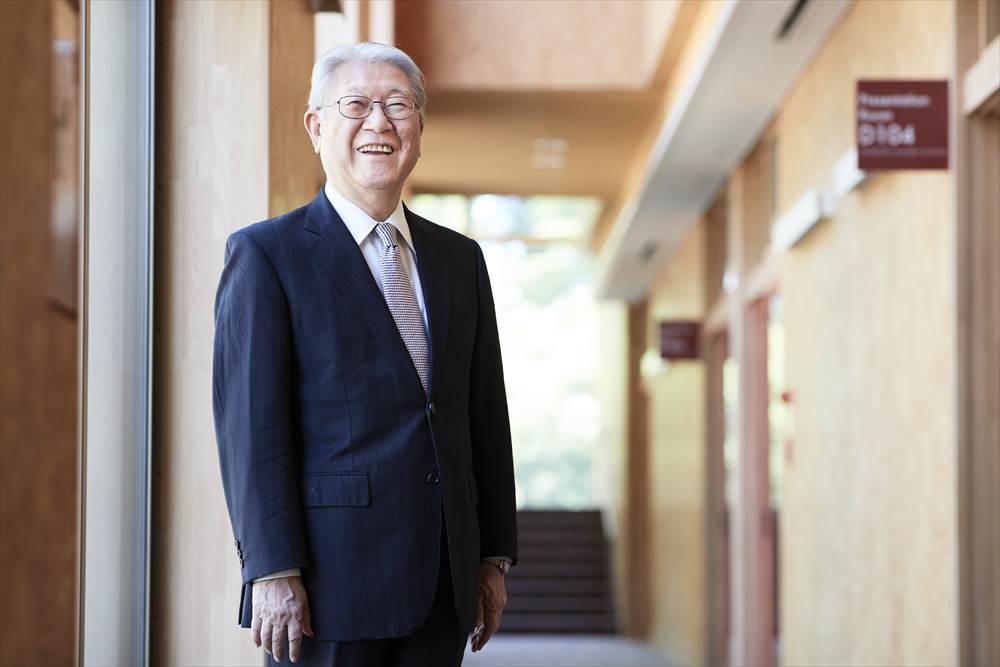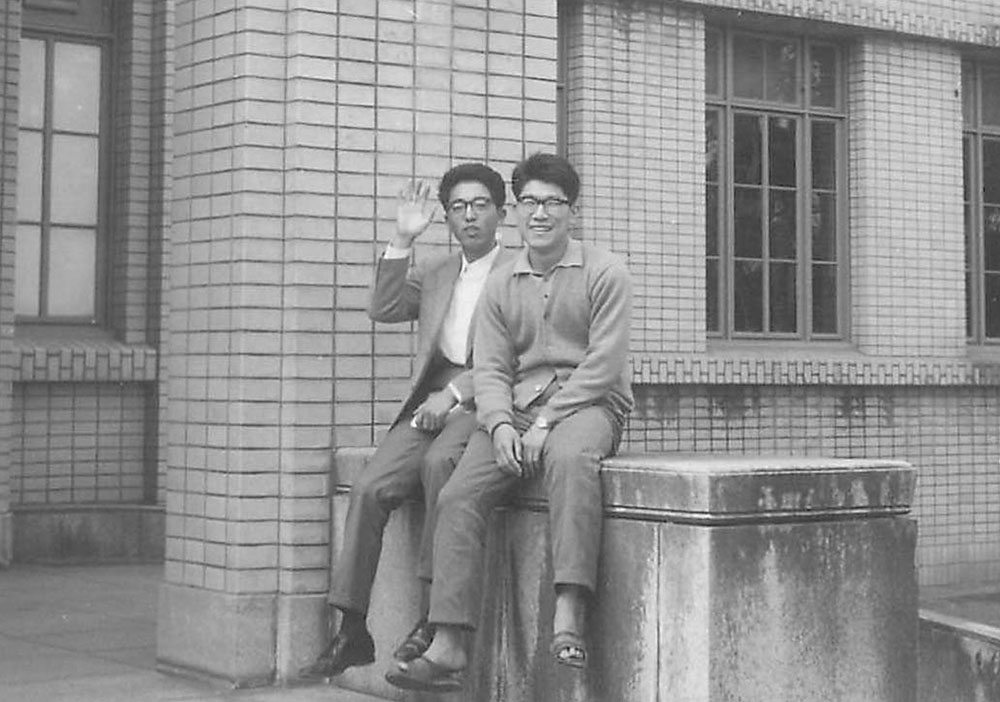五大联赛竞猜app_欧冠在哪买球-彩客网官网推荐
AIU Voices
【Faculty Voices】 Episode 3: “Job Search in the US — Grab the Chance of One in a Million” — Dr. Norihiko SUZUKI
You may have seen the faces of our faculty members, be it in a face-to-face classroom, an online classroom discussion, the university brochure, or possibly, through their professional outputs. But do you know how they really are as an individual?
This Faculty Voices series aims to acquaint you with some of our unique faculty members in the form of a relay essay by the faculty themselves. You will have a chance to get a glimpse of the faculties’ personal agenda, concept on life, philosophy, and memories, as well as their area of profession and research theme.
The third episode is from AIU’s president Norihiko SUZUKI.
After President Suzuki obtained his D.B.A at Indiana University in the United States, he had taught at universities at home and abroad since 1978. He has assumed office as the Chair of the Board and President of AIU on June, 2013, and President Suzuki has successively been appointed as a member of the Central Council for Education, University Education Section, and various other important posts.
President Suzuki has offered us a message under the theme My struggles during my youth. The President’s messages are published as a three-part series.
Click here for his first episode.

Job Search in the US —Grab the Chance of One in a Million—
I started my doctoral course in Management at Indiana University when I was in my first year of Graduate School of Hitotsubashi University in September, 1973 and gained a degree of DBA (Doctor of Business Administration) in International Management in January, 1978.
My major was economics while I was in Japan but changed it to business in the United States.The title of my thesis was “Transfer of American Business Education —International Business Educational Life Cycle—“ in which business education is regarded as a scheme that produces business personnel. It discusses how to extend the scheme of producing business education products from the United States, as an advanced nation, to overseas. I created a transfer model and verified it conducting questionnaires and interviews for 600 universities with faculty of business management in eight countries around the world. If I remember correctly, there were approximately 200 answers.
The abstract of my thesis won the paper contest at the then Chicago Tribune newspaper and published in The Journal of International Business Studies later.
President Suzuki (right) as a university student
One day I was drinking with my classmates of the doctoral course, who celebrated winning my prize at a bar in the downtown of Bloomington. While we were having a good time, an American gentleman sitting at a table right behind me struck up a conversation with us.
“Excuse me to bother you, but I was wondering if you were students of the Business School of Indiana University.” Once we said yes, then he asked me if there was a Japanese person in our group. All my friends pointed to me and said that I was Japanese whose name was Nori (it was my nickname then) who won the paper contest of the Chicago Tribune, and that this was the celebration.
The man then grabbed his glass and moved to our table. We found out that he was the Dean of Faculty of Business at Washington State University, located in Pullman city, Washington State. He started asking me questions one after another such as the possibility to finish my thesis, the timing of completion of my thesis, the topic of my thesis, my future career plan after graduation, the possibility of going back to Japan, if I am married or not, if I am a city person or not, etc.
He finally stopped asking and left after he got my home address and phone number, since after all we were celebrating, but asked me to see him again the next day, and I said yes. My friends described the situation as if it was a job interview.
On the following day, I saw him at my office. His explanation was very specific and practical: the US-Japan relations at that time were extremely tense due to the huge trade surplus on the Japanese side, and as part of the breakthrough measures, the Japanese government was trying to expand imports from the United States Donation of a total 10 million dollars. Washington State University became one of 10 recipient universities; however, the University did not provide any courses related to Japanese Management or the US-Japan economic problems because no one could teach them, and that they were planning to interview several Japanese researchers besides me.
I told him honestly about my current job search situation, that two universities invited me to their final interview. At the end of the conversation with him, he told me the specific salary WSU would pay and the average cost of a house in Pullman city saying, “This is just for your information.” This kind of conversation in the US indicates that interviewees are at the final stage of job interview.
A month later, I got an official invitation of job interview from the Dean, and spent an intensive two days in Pullman having interviews by faculty and executive members of the Business Management department, presenting my research thesis, having dinner with faculty members, as well as a city and residential area tour including parks, schools and hospitals.
Pullman city was a small city with 20,000 population and 20,000 students, all surrounded by wheat fields and a calm atmosphere full of greenery, which was just 10 kilometers away from the boarder with Idaho State and Idaho State University. This was the place I spent the next coming five years until I moved to Illinois University.
…to be continued.
Click here to learn more about AIU faculty.
Click here for more episodes from the Faculty Voices Series.

